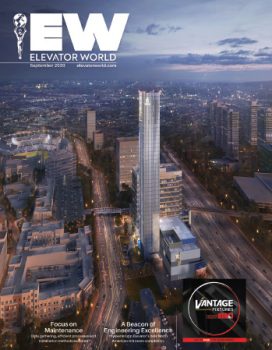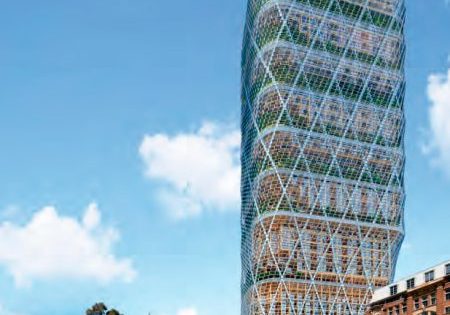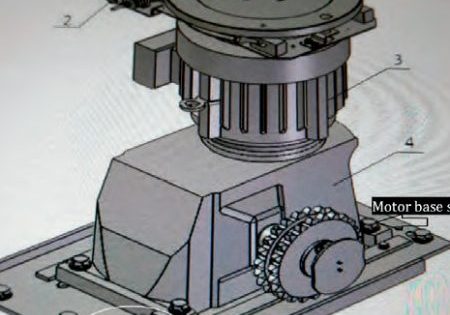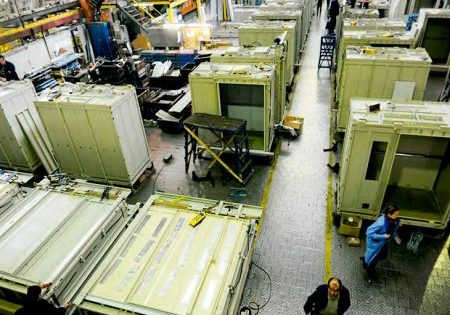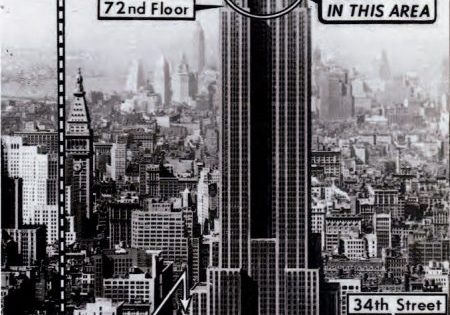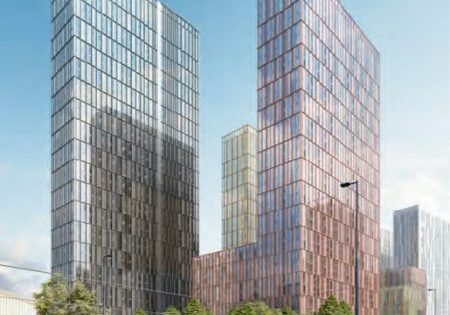Your author (KW) speaks with attorney Guy Gruppie (GG) about pandemic-related vertical-transportation (VT) litigation.
by Kaija Wilkinson
In early June, Guy Gruppie was closing in on his third month working from home (rather than in his office on the ninth floor of a 12-story mixed-use tower in downtown Los Angeles) when he spoke with your author about elevators, escalators and moving walks in the COVID-19 era — specifically, legal action owners, operators and others involved in the industry could face related to the situation. Gruppie has authored numerous legal papers geared toward the VT industry, including “Uncommon Perception: The Common Carrier Duty Does Not Rule Out Defense Verdicts in Elevator and Escalator Accident Trials.” In the paper, published in Federation of Defense & Corporate Council Quarterly in 2009, Gruppie lays out the history and meaning of “common carrier,” which is an entity possessing “the utmost caution characteristic of very careful prudent men or the highest degree of vigilance, care and precaution,” according to Prosser and Keeton. In the paper, Gruppie states:
“Whether an owner or operator of an elevator or escalator is deemed a common carrier is an issue of significant importance because common carriers are held to a heightened duty of utmost care and diligence, rather than the ordinary negligence duty of ‘reasonable care under the circumstances.’ The heightened duty of care standard makes owners and operators vulnerable to negligence suits for which noncarriers are not held liable.”
High courts in at least 14 states have held that VT equipment owners or operators are common carriers, thus held to higher standards. Keeping passengers safe is a priority for reputable VT firms, so they should have little to worry about should sickness or infection by COVID-19 occur. Gruppie goes into detail about this and related issues.
KW: You shared a May 11 article from Law 360 about Congress mulling whether to grant businesses immunity from civil lawsuits related to COVID-19. Would this be a good thing?
GG: If they do it right and make sure workers are protected, too, it makes sense. We want everybody to open their businesses back up and feel protected from events beyond their control. If businesses are doing what we’re doing at the law firm, which is making Purell® dispensers readily available and having visitors stand at spaced “X”es on the floor as they approach the receptionist’s desk, that decreases liability. Maybe these measures aren’t on the books forever. Say, have them in place for the next year or so, and then they have to be reauthorized.
“The heightened duty of care standard makes owners and operators vulnerable to negligence suits for which noncarriers are not held liable.”
KW: Maybe it’s too early to say, but have you seen or anticipate an increase in elevator tort cases related to COVID-19?
GG: At least in California, given the court closures and discussions of extending statutes of limitations and timeframes for people to file motions to dismiss cases for lack of evidence, I just can’t tell. Some plaintiffs’ lawyers have decided, “Well, I have a potential lawsuit. Maybe I’ll try to settle it directly with the insurance company. But, otherwise, I’m perfectly happy to wait.”
Unless and until there is a filing, unless it’s a really big case, I wouldn’t hear about it. Plus, you don’t even know what’s being filed, because the clerk’s office, even before COVID-19, was way behind. So, I don’t sense any discernable trend right now, but I would expect, once the courts open back up, we’ll see a flurry of filings in a very short period time. I’m a little worried about that, because everything has been in a holding pattern. All of a sudden, they’re going to open the gates of the corral. Can we handle all the horses that are running right at us?
KW: Could some of these cases be VT-related?
GG: Yes. I think for the most part, you would anticipate: because of the general decrease in economic activity, there are going to be fewer torts, including elevator- and escalator-related accident cases. On the other hand, a lot of buildings have remained open, and people have been using VT. Whether it’s L.A. or NYC or any other city where there are significant public-transportation systems, usage of elevators and escalators has remained significant, even though it decreased in the short term.
“I would expect, once the courts open back up, we’ll see a flurry of filings in a very short period of time.”
KW: Does common carrier status extend to COVID-19?
GG: It certainly would not apply to product liability, and would likely not be relevant for companies with service contracts. I think this inquiry falls squarely within the discussion going on about immunity. Does someone who owns a building face additional liability because of the threat of people coming into that building and contracting coronavirus? Will the same hold true for elevators and escalators? I think common carrier immunity might apply in this circumstance, provided that all reasonable steps have been taken to disinfect, clean, supervise and oversee the elevators and escalators in question. I think it’s a little too soon to tell. Could you even pinpoint the transmission point being on an elevator or escalator? I think there is a relatively strong causation argument that might relate more to the building or business as a whole, rather than the VT within it. That would take the common carrier liability question out of the picture.
“In L.A., escalator and elevator usage, at least in the private sector, has gone down substantially.”
KW: So, this heightened duty of care is the responsibility of the property owners and managers, the owners of the equipment? There is no way it could extend to the manufacturers of VT equipment and cleaning systems?
GG: That is certainly the way I see it. The common carrier obligation is a derivative of negligence that pertains to the owners and operators of the mode of transportation deemed, legally, to be a common carrier apparatus, though such liability, in my experience, exclusively rests with the owner.
KW: Is it fair to say VT equipment owners are going to incur added expense to properly prepare their equipment to keep passengers safe?
GG: The clients I typically represent discharge their common-carrier duty by hiring the most qualified, certified and experienced service and maintenance providers, so I don’t know if there would even be an added expense. That’s because recommended cleaning and disinfection was being done prior to COVID-19. I think passengers would do themselves a favor by wearing masks, protective equipment and gloves, if necessary. Maybe I’m kind of a germaphobe, but I never like making skin contact with the elevator buttons, even in my own building. So, again, I think it’s a balance. But, at first push, I don’t see there being big, extra expenses in the elevator and escalator context, at least the way things stand right now.
KW: What about a shift toward working remotely permanently or from low-rise buildings, rather than in high rises in downtown L.A. or NYC?
GG: Our business is not alone in noticing that a lot of our employees seem to be just as productive at home, if not more so, than they were in the office. In a city like L.A. with so much traffic, the commercial real estate people have got to be asking themselves that same question. One of the real lessons of the coronavirus crisis is that the model of the big central office in a major city, at least on the scale at which it exists now, is in question. Is that going to be the norm going forward? I really don’t know. In L.A., escalator and elevator usage, at least in the private sector, has gone down substantially.
KW: Will catastrophic injury tort cases, including those related to VT mishaps, persist?
“The engineering skill and prowess of VT industry professionals; the safety of the products; and meticulous maintenance, repair and oversight of the equipment outweigh the dangers in the vast majority of instances.”
GG: Yes. It’s going to happen, and it’s going to happen on a big scale when we all rush back to work. We had this period of time in L.A. when you could predicate your life and calendar on the cadence of the court. You would learn how to manage things for your clients and your personal life. But, we have had this massive, unanticipated timeout. I guess you could go downtown right now and get a restraining order or have a warrant issued, but, otherwise, tort cases are being put further down the pile of judges’ caseloads. At some point, though, those cases are going to get called. Once we get going, it’s going to be on a really fast track. There are going to have to be alternative dispute/resolution conferences that we really don’t have now. There will be a big, pent-up demand for judicial time and resources.
KW: In your paper, you said the days when escalators and elevators were considered even a minor safety risk have long passed. Did COVID-19 kick this into high gear?
GG: Not that I’ve seen. The engineering skill and prowess of VT industry professionals; the safety of the products; and meticulous maintenance, repair and oversight of the equipment outweigh the dangers in the vast majority of instances. Back in the day, there was usually somebody paid by the building to operate them (and not just at Saks Fifth Avenue). Now, elevators operate almost as an afterthought.
Think how irritated you get when your elevator is out of service. It’s such a safe, reliable mode of transportation. As this crisis has impacted so many aspects of our lives, I’m happy to say, at least right now, that impact did not reach elevators or escalators, or, more importantly, the public’s perception of them. Every once in a while, you read about one of these old buildings in NYC where they were using a freight elevator, and something horrific happened. You read a little further into the story and see it was installed in 1910. We’ve benefitted from amazing technological advancements since then. Elevators and escalators, quietly and without fanfare, and often without much appreciation, have enhanced the quality of our lives.
I think our area of concern here is probably just the broad sweep of this virus. We all want to stay in business. We’re moving forward and looking forward to the day where everyone is back in the workplace, at school and getting back to their lives in the way, shape and form that suits them.
KW: Including elevators and escalators?
GG: Especially elevators and escalators.
About Guy Gruppie
 Guy Gruppie is a senior partner resident in the Los Angeles and San Francisco offices of Murchison & Cumming, LLP. He serves as co-chair of the Emerging Risks & Specialty Tort Practice Group and is a senior member of the firm’s Product Liability, General Liability, Business Litigation and Hospitality Litigation practice groups. Gruppie specializes in the defense of complex, high-stakes litigation. Gruppie has developed a diverse portfolio of clients and authored VT-industry papers and conducted seminars, including
Guy Gruppie is a senior partner resident in the Los Angeles and San Francisco offices of Murchison & Cumming, LLP. He serves as co-chair of the Emerging Risks & Specialty Tort Practice Group and is a senior member of the firm’s Product Liability, General Liability, Business Litigation and Hospitality Litigation practice groups. Gruppie specializes in the defense of complex, high-stakes litigation. Gruppie has developed a diverse portfolio of clients and authored VT-industry papers and conducted seminars, including
“Anatomy of an Elevator Accident Trial,” which he presented at the National Association of Elevator Contractors Spring Educational Conference in Sarasota, Florida, in 2008. He is a longtime member of the American Board of Trial Advocates and, since 2016, has served as an appointed mediator for the Superior Court of California of the County of Los Angeles.
Get more of Elevator World. Sign up for our free e-newsletter.

